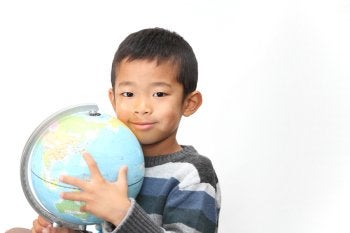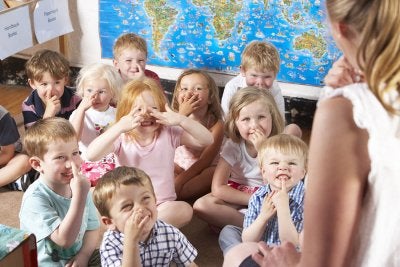-
A First Grader’s Introduction to Social Studies
First grade is an exciting stage for children as they develop critical skills, practice creativity, and master academic basics. If you have a first grader in Pembroke Pines , then one of the subjects that he will explore this year is social studies. Read on to learn a bit about what your first grader might experience in his social studies curriculum.
Rules and Rights
Children in first grade are beginning to exhibit greater independence and take on more responsibility when it comes to caring for themselves and finding things or places. Also, their social studies curriculum can cause them to place more importance on understanding and following classroom rules as they begin to view their classroom as a small society where individuals have their own rights and opinions.
Economy and Transportation
In first grade, kids are introduced to concepts of economy, such as goods and services, buying and selling, and consumers and producers, so do not be surprised if your student sets up a lemonade stand in your living room or attempts to barter for something he wants. In first grade, your student will also study modes of transportation and how they are used.
Geography and Maps
You can expect to see maps and globes when you enter a first grade classroom. Children at this grade level are introduced to things such as the different continents of the world, maps and how to interpret them, and cardinal directions.

History and Culture
At this stage in their development, children understand the concepts of past, present, and future, and as part of their social studies curriculum, first graders explore topics like important events in United States history, symbols and their meanings, national holidays, and other cultures and time periods. These areas of learning may prompt your first grader to compare your family to others and point out examples of diversity in your community as he begins to spot differences in people and groups.
-
The Impact of Pre-Kindergarten on Academic Success
It has become much more common for children to attend pre-kindergarten in Pembroke Pines, because there are a number of benefits that this type of early education can have. Parents and teachers have been noticing the greater impact that a pre-k education has on children’s overall success in life, as well as their academics.
Children Are Academically Prepared
 It is no secret that educational expectations and standards are growing every year. Children are expected to enter kindergarten with academic skills normally attained once in kindergarten or even first grade. With standards becoming higher, children need to enter academic life with the preparation that usually comes from a pre-kindergarten education. Children attend early educational programs—typically for a few hours a day and a few days a week—where they learn their numbers and letters, as well as a basic understanding of how these concepts become the building blocks of their future education.
It is no secret that educational expectations and standards are growing every year. Children are expected to enter kindergarten with academic skills normally attained once in kindergarten or even first grade. With standards becoming higher, children need to enter academic life with the preparation that usually comes from a pre-kindergarten education. Children attend early educational programs—typically for a few hours a day and a few days a week—where they learn their numbers and letters, as well as a basic understanding of how these concepts become the building blocks of their future education.Children Are Mentally Prepared
Kindergarten classes are typically held for a six to eight-hour period, every day of the week. The work can be mentally taxing, especially to a child who is not accustomed to regular classwork. When children are not exposed to classroom life, in addition to the academic expectations of school, they are less likely to succeed. Without a solid pre-k foundation, children may not be as focused as their peers who did attend pre-kindergarten programs.
Children Are More Likely to Succeed in School
Pre-k programs and classes are geared toward making learning fun for young children. These children, typically ages three to five, are filled with energy and cannot sit down and learn for long periods of time. Pre-k teachers must make their lessons fun and entertaining so children are more likely to learn. As they grow up associating learning with fun, they are more likely to do well in school where they can continue learning and having fun. Attendance, behavior, and academic success are much more likely with a pre-kindergarten education.
RECENT POSTS
categories
- Uncategorized
- Early Learning Center
- Pre-K
- Children
- Child Care Center
- Preschooler
- Preschool Blog Category | Tanglewood Academy
- Preschool Lunch
- Tanglewood Academy
- After-School Program
- Toddler School
- Early Childhood Education
- preschool activities
- pre-kindergarten
- childhood education
- pre-kindergarten programs
- Children’s education
- enrichment opportunities
- Kindergarten
- Nurturing Education Environment
- Toddler Care
- Child Separation Anxiety
- Toddlers
- Summer camp
- summer activities
- VPK
- Voluntary Pre-K
- Outdoor Activities
- Smart Strategies
- Tie Shoes
- Snacks
- Physical Activities
- Education
- Enrichment Activities for Kids
- Early Education Activities
- Preschool Curriculum
- Classroom Learning
- APPLE accreditation
- Language Comprehension
